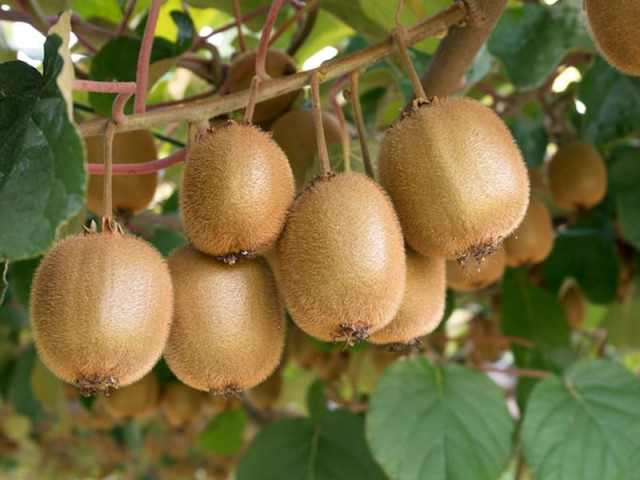Pakistan a potential supplier to global kiwifruit market
Institutions of Pakistan, China ink MoU for in-depth cooperation

Pakistan's agricultural experts at the international training workshop on kiwifruit production in Sichuan saw their country's potential to become an important player in the world's kiwifruit market through collaborating with China.
Meanwhile, a memorandum of understanding (MoU) was reached between the Sichuan Provincial Academy of Natural Resource Sciences and the University of Swabi, marking a promising beginning of Sino-Pak kiwifruit cooperation in a more in-depth form.
"Pakistan's kiwi industry has immense potential for growth and development. With its favourable climate, rich soil and abundant water resources, Pakistan can become a significant player in the global kiwifruit market," Dr Ruidar Ali Shah from the University of Swabi told China Economic Net.
Furthermore, "Pakistan's strategic location allows for easy access to markets in the Middle East, Central Asia and Europe, providing a competitive edge. I am optimistic about the future of Pakistan's kiwi industry and its potential to contribute significantly to the country's economy," he added.
"Pakistan's climate, especially in its northern and hilly regions, is suitable for growing kiwifruit, which requires moderate temperatures and adequate rainfall. The growing demand for kiwifruit in both local and international markets, coupled with Pakistan's large agricultural workforce, presents a significant opportunity to develop a profitable industry," Dr Muhammad Akhlaq from PMAS-Arid Agriculture University Rawalpindi echoed similar views.
At the two-week workshop, agricultural experts from different countries including Pakistan, Egypt, Nepal and Mongolia learnt from China's expertise in kiwifruit germplasm resource collection and protection, new variety breeding, cultivation management, pest control, post-harvest storage and marketing.
"China's kiwifruit technology and industry are highly advanced and impressive. Its experience in kiwifruit production, particularly in Sichuan province, is remarkable. China's success in kiwifruit cultivation, harvesting and marketing is attributed to its robust research and development, efficient irrigation systems and effective supply chain management," Dr Ruidar Ali Shah said.
Additionally, as Dr Muhammad Akhlaq sees it, techniques such as controlled atmosphere storage, mechanised harvesting and disease-resistant varieties are some of the advancements contributing to China's dominance in the market. According to the Pakistani experts, Chinese technologies and practices could be applicable in Pakistan with right adaptation based on the South Asian country's unique climate, soil and market conditions.
More specifically, China's expertise in developing resilient and climate-tolerant kiwifruit varieties may help Pakistan overcome challenges related to climate variability, water scarcity and pest control.
"The Belt and Road Initiative (BRI) offers a platform for both countries to collaborate in agricultural projects, including kiwifruit cultivation. Pakistan could also benefit from Chinese markets by exporting kiwifruit once production scales up," Dr Muhammad Akhlaq stressed.



















COMMENTS
Comments are moderated and generally will be posted if they are on-topic and not abusive.
For more information, please see our Comments FAQ